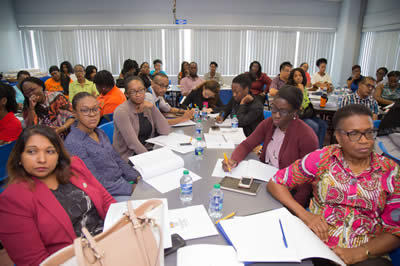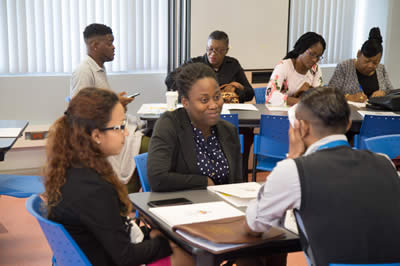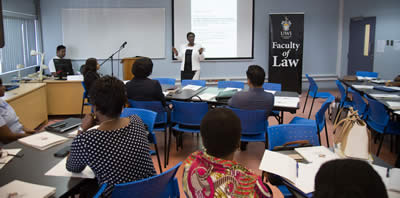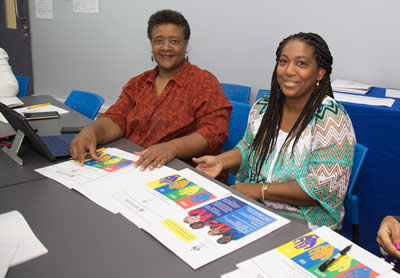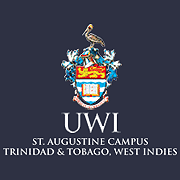Specialist Workshop - Child Rights and the New Laws in Trinidad and Tobago
The project ‘Strengthening Trinidad and Tobago’s Human Rights Capacity through Innovative Legal Education Delivery’ implemented by the Faculty of Law, U.W.I. St. Augustine, hosted a Specialist Workshop on ‘Understanding the Paradigm Shift in Child Protection – Children’s Rights and the New Laws in Trinidad and Tobago,’ on Saturday 29th September, at the University of the West Indies, St. Augustine Campus. Invitations were issued to key organisations from the state, civil society and private sector, with an interest in and working for the rights of the child. Over seventy (70) persons attended the workshop, which was led by the chief facilitator, Mrs. Hazel Thompson-Ahye, an esteemed child advocate and recent recipient of the Hummingbird Medal (Gold) 2018.
The workshop was opened by Professor Rose-Marie Belle Antoine, Dean of the Faculty of Law at U.W.I. St. Augustine. Bringing remarks on behalf of the Children’s Authority was Mr. Hanif Benjamin, Chairman of the Authority, who lauded the Faculty’s efforts on shining a light and supporting the work of the Authority. After a brief opening session, Mrs. Thompson-Ahye kicked off the workshop with a comprehensive overview of the primary guiding principles and international conventions that ought to guide holistic and forward-thinking national legislation. In a frank and interactive way, Mrs. Thompson-Ahye engaged the participants in reflecting on national progress in several of the Articles of the Convention on the Rights of Child, such as the Right of the child to have freedom of thought, conscience and freedom, as well as the Right of the child to preserve his/her identity, including nationality, name and family relations. The participants, comprising practitioners in the fields of child rights and protection, engaged in a lively and thought-provoking way to the realization of these Articles in Trinidad and Tobago’s legislation.
After the comprehensive overview and reflection, participants were asked to reflect on what are the strengths and areas for improvement in the national child rights/protection framework, and what are some of the barriers to improvement. With lively debate, some of the more common ‘strong’ areas were: the clear legislative tools for reporting, the growing inclusion of these issues into school curricula, and the development of childcare centres. Areas for improvement were also quite varied, with participants indicating that: Alternative discipline in schools can be a key positive step forward, greater support is still needed for children with different abilities, and outreach to the public is still deeply needed. Possibly one of the most intense portions of the debates were the barriers to inclusion: subjective definitions, a disconnect to the culture, and monitoring and evaluation were all identified as some of the key obstacles to overcome in streamlining the child rights & protection sector.
Following these interactive sessions, Ms. Sharlene Jaggernauth, Head of the Legal Unit at the Children’s Authority gave a wide-ranging presentation on the Children’s Act and the ambit of the Children’s Authority. The Children’s Authority also presented on the Community Residences, Foster Care and Adoptions Act, led by Ms. Anjuli Tewarie. These presentations were also met with vibrant discussion between the participants and presenters. The workshop culminated with a panel discussion that comprised of representatives from the Children’s Authority, the Legal Aid and Advisory Authority, the Child Protection Unit, and the Solicitor-General’s Office. The representatives, as individuals and a group, outlined the current framework for child protection and the role of their individual organisations in ensuring that every child’s rights are maintained. As mentioned, the roles and experiences were fiercely interrogated by the participants, which led to lively and intense debates back and forth.
The workshop ended with a clear realization that more outreach and training needs to be done, not just as public information, but targeted interventions to policy makers and practitioners within the field, as the child rights and protection sector is changing rapidly. The project under which this first workshop on Children’s Rights falls, in the Faculty of Law’s newly instituted International Human Rights Clinic, is funded by the European Development Fund, administered by the Ministry of Education, and continues for 1 year with a series of Public Lectures and training on topical issues which will include the Rights of Children; Migrants and Refugees; and Indigenous Peoples.
